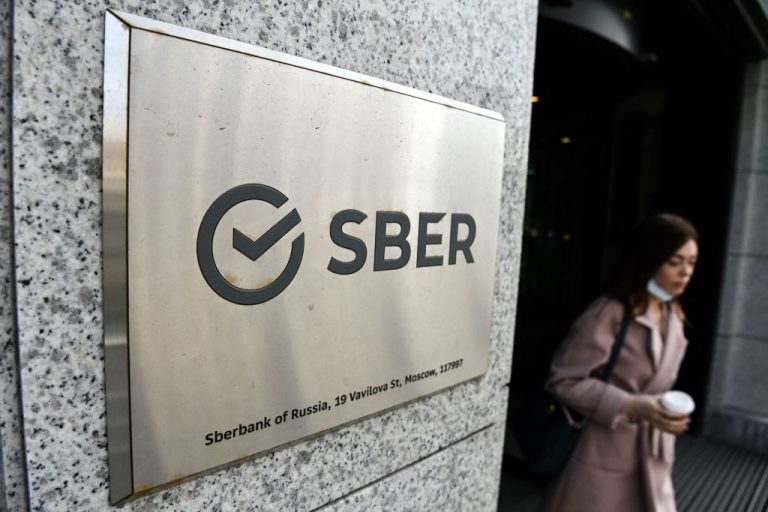An upcoming cyberattack defense simulation being hosted by the globalist and Chinese Communist Party-aligned World Economic Forum (WEF) in connection with Russia’s government-controlled Sberbank and its subsidiary BI.ZONE, a cybersecurity firm, has some speculating the event may be a foreshadowing for the next global crisis.
Cyber Polygon 2021 is an official WEF project partnered with names as big as IBM, Interpol, ICANN, Ericsson, Trend Micro, and Visa. The event lists Russian state-media TASS as an information partner and companies such as Deutsche Bank and Ernst & Young, and several banks and government institutions from Europe and Southeast Asia as participants.
“With the digital world being as interconnected as it is, all its participants expose themselves to a number of safety risks. A single data breach across the ocean could trigger a chain reaction and spark a ‘digital pandemic’ across the globe,” says the event’s website’s About Page, which still points to last year’s event. Cyber Polygon 2021 is scheduled to begin on July 9.
The Training Description for the 2021 event begins with the following preamble, “Today, we see myriads of digital ecosystems emerge all around us. They are created by countries, large corporations and even small businesses for the purpose of streamlining their operations. These involve a large number of interactions, both external and internal, with all the parties being closely interconnected. In this context, the vulnerability of supply chains has become a growing concern: an attack on a single company can jeopardise the entire ecosystem.” [Emphasis inherent]
“Supply chain security is not an issue to be resolved in an instant. With that in mind, the central theme of the training this year will be ecosystem security and mitigation of supply chain attacks.” [Emphasis inherent]
Success
You are now signed up for our newsletter
Success
Check your email to complete sign up
The event will consist of participants taking the role of a “Blue Team,” which will defend from an attack deployed by the “Red Team,” which is composed of Sberbank’s BI.ZONE. The simulation consists of two scenarios, one where Blue Team will defend against the attack in real-time and the second where they will investigate and respond to the attack to “compose a dossier that would help law enforcement agencies to locate the criminals.”
Organizers say the event is designed as a training exercise, rather than a competition, and so results and scoring will only be anonymous.
Goodbye COVID-19, hello digital pandemics
In January, the WEF posted a YouTube video titled A Cyber-Attack with COVID-Like Characteristics? which claims the Internet suffers from a similar, yet more exacerbated, threat than the human body does from a contagious disease, “A cyber attack with COVID-like characteristics would spread faster and further than any biological virus.”
The video, with 265 likes and more than 1,300 dislikes, is now unlisted.
The WEF claims this conceptual Internet virus would have a reproductive rate “10 times greater than what we’ve experienced with the coronavirus.”
The video claims the only way to handle an exponentially contagious computer virus would be to disconnect each and every infected device from the Internet, adding that a single day without the Internet would cost the global economy more than $50 billion USD.
“And that’s before considering the economic and societal damages should these devices be linked to essential services such as transport or healthcare,” they say.
In WEF figurehead Klaus Schwab’s opening remarks at the hack-a-thon’s 2020 event, he said “We all know, but still pay insufficient attention to, the frightening scenario of a comprehensive cyber attack, which would bring a complete halt to the power supply, transportation, hospital services, our society as a whole.”
“The COVID-19 crisis would be seen in this respect as a small disturbance in comparison to a major cyber attack.”
Schwab was rather direct when he stated, “It is important to use the COVID-19 crisis as a timely opportunity to reflect on the lessons of cybersecurity community to draw and improve our unpreparedness for a potential cyber pandemic.”
Russia’s state-owned Sberbank
The alignment between both the WEF and companies such as IBM and Visa for a digital pandemic or cyber-attack scenario with a Russian state-owned asset is a notable departure from the mainstream narrative surrounding the SolarWinds hack, the Colonial Pipeline ransomware, or the alleged 2020 Presidential Election interference, all linked to one common adversary: Russia.
Sberbank is a state-owned lender and the largest bank in Russia. According to Moscow Times, in April of 2020, the Putin government spent $28.5 billion USD from its Sovereign Wealth Fund to purchase a controlling stake in the organization from Russia’s central bank. “The purchase does not change Sberbank’s role as a state-owned bank, but was designed to remove the regulatory conflict of interest which could arise from the country’s banking regulator owning the country’s largest bank,” reads the report.

Sberbank was originally founded by Czar Nicholas I in 1841 and was later transformed under the Union of Soviet Socialist Republics into the State Labor Savings Offices.
According to a January article by The Economist, Sberbank is no longer just a financial institution, “The roster of current and planned offerings ranges from cloud-computing to ride-hailing, virtual assistants, e-health and its own cryptocurrency. Forget banking: the firm has rebranded itself as Sber.”
The article says Sberbank CEO German Gref’s vision for his Russian state-owned vanguard “is not American or European but Asian.”
“Far-eastern ‘super-apps’ have emerged offering a wide array of services under one roof. The likes of WeChat in China or Grab in South-East Asia have thrived by disrupting old financial institutions.”
“Sberbank wants to be the disruptor instead,” reads the article
Sber has, over the course of the hysteria surrounding SARS-CoV-2, picked up real estate management platform Doma.ai and digital map company 2GIS, both Russian-language assets.
The bank also is the lead investor on 11 other Russian projects with the specific digital economy and social credit-facing qualities, including Smart Resident, “a mobile application for quick and convenient access to solving housing and communal issues,” Malivar, “a media company that creates and promotes virtual influencers and characters,” as well as companies involving e-groceries, e-signatures, digital payment processors, and autonomous driving platforms.
A repeat of Event 201?
Some off-the-beaten-path analysts fear Cyber Polygon 2020 and 2021 will be repeats of the infamous, albeit not-talked-about in the mainstream, Event 201 pandemic preparation event, which took place in October of 2019 at roughly the same time SARS-CoV-2 is likely to have escaped from the Wuhan Institute of Virology in China.
Event 201 was a live scenario staged at The Pierre Hotel in New York on October 18, 2019. The event was headlined, organized, and participated in by none less than the John Hopkins Bloomberg School of Public Health Center for Health Security, the World Economic Forum, and the Bill and Melinda Gates Foundation.
The Scenario Page on the Event 201 website is shockingly prophetic, “Event 201 simulates an outbreak of a novel zoonotic coronavirus transmitted from bats to pigs to people that eventually becomes efficiently transmissible from person to person, leading to a severe pandemic. The pathogen and the disease it causes are modeled largely on SARS, but it is more transmissible in the community setting by people with mild symptoms.”
“The next severe pandemic will not only cause great illness and loss of life but could also trigger major cascading economic and societal consequences that could contribute greatly to global impact and suffering,” reads the Recommendations section of the event’s website.
Organizers added the event “vividly demonstrated a number of these important gaps in pandemic preparedness as well as some of the elements of the solutions between the public and private sectors that will be needed to fill them.”
An 11 minute and 45-second Highlights Reel of the scenario, posted on the Center for Health Security’s official YouTube channel, shows the simulated event was nearly identical to how the media and government have responded to SARS-CoV-2 in reality.
A fondness for the CCP’s social credit
During the 2020 Digital Polygon event, former British Prime Minister Tony Blair deployed a promotion of the CCP’s social credit score in the form of a digital identification system when he said “Digital ID for me is a very big part of the future.”
“Inevitably, governments are going to move in this direction — absolutely, inevitably,” said Blair.

“And so what I think’s most important is that we from the political side wake-up to the potential of technology and engage with the changemakers inventing the technology, so that we understand it and can regulate it sensibly and not stupidly.”
Blair’s comments were given in a conversation with Sberbank CEO German Gref.
Blair has been bold in his calls for the installation of vaccine passports to protect the world from COVID-19. He said to The Telegraph in January there are two risks the UK would face if they did not use their influence over the G7 to install global vaccine passports, “One is that everyone just does their own thing, which is much more chaotic and difficult to manage. Or secondly, there’s a set of rules in place that you may not be that happy with,”
“It’s better to have common rules and a common verification system, so that people know what your disease status is and know it with some validation.”
In a November of 2020 article on the WEF’s website titled A Billion People Have no Legal Identity – but a New App Plans to Change That, the globalist bloc advocated for a smartphone app that uses a centralized blockchain technology that would merge food and stability, e-commerce, travel, healthcare, and financial services together under a centrally managed ID.
When it comes to technocracy, globalists appear to mean business. Klaus Schwab, author and vanguard advocate of Covid-19: The Great Reset, and Shaping the Future of The Fourth Industrial Revolution, said during remarks given to the Chicago Council on Global Affairs in October of 2019, “What the fourth industrial revolution will lead to is a fusion of our physical, digital and biological identity.”
In his book on the Fourth Industrial Revolution, Schwab says “As capabilities in this area improve, the temptation for law enforcement agencies and courts to use techniques to determine the likelihood of criminal activity, assess guilt or even possibly retrieve memories directly from people’s brains will increase.”
“Even crossing a national border might one day involve a detailed brain scan to assess an individual’s security risk.”
“Fourth Industrial Revolution technologies will not stop at becoming part of the physical world around us—they will become part of us.”
And indeed, it would appear Schwab means they will become a part of us in a very real way. In July of 2020, the WEF released a 28-page Briefing Paper titled Shaping the Future of the Internet of Bodies: New Challenges of Technology Governance, which said under its Executive Summary, “With an unprecedented number of sensors attached to, implanted within or ingested into human bodies to monitor, analyse and even modify human bodies and behaviour, immediate actions are needed to address the ethical and legal considerations that come with the IoB [Internet of Bodies].”
“The urgency of such actions is further brought to the forefront by the global COVID-19 pandemic, with extensive IoB technologies and data being enlisted for the surveillance and tracking of coronavirus
In June of 2020, Xiao Liu, a Fellow at Canada’s McGill University and a Fellow at the Center for the Fourth Industrial Revolution, penned an article titled The Internet of Bodies is Here. This Is How It Could Change Our Lives where she stated, “It’s now time for the Internet of Bodies. This means collecting our physical data via devices that can be implanted, swallowed or simply worn, generating huge amounts of health-related information.”

















